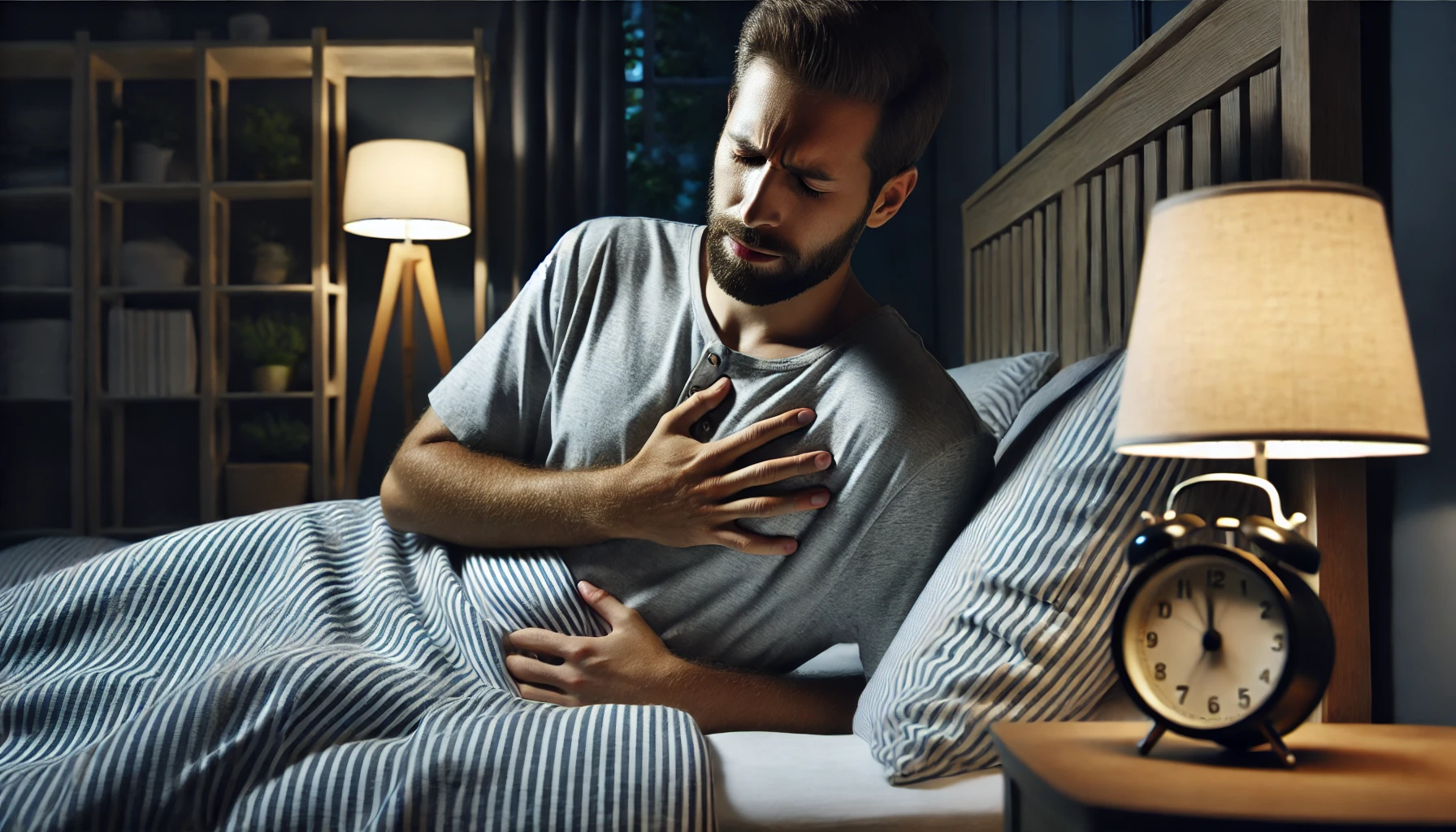This post was written with Consensus AI Academic Search Engine – please read our Disclaimer at the end of this article. Nighttime heartburn, a common symptom of gastroesophageal reflux disease (GERD), significantly impacts the quality of life by disrupting sleep and potentially leading to more severe health issues. Understanding the causes of nighttime heartburn is crucial for developing effective management strategies.
Gastroesophageal Reflux Disease (GERD)
GERD is a chronic condition where stomach acid frequently flows back into the esophagus, causing irritation. This backflow, or acid reflux, is the primary cause of heartburn. Nighttime heartburn is particularly prevalent among GERD patients, exacerbating sleep disturbances and reducing overall sleep quality1 2 3.
Sleep Deprivation and GERD
Sleep deprivation itself can worsen GERD symptoms. Studies have shown that lack of sleep increases the sensitivity to acid in the esophagus, leading to heightened perception of heartburn. Patients with GERD who experience sleep deprivation report more severe symptoms compared to those who have adequate sleep4. This hyperalgesic effect of sleep deprivation underscores the bidirectional relationship between sleep quality and GERD severity.
Acid Reflux During Sleep
The horizontal position during sleep can facilitate the backflow of stomach acid into the esophagus. Gravity, which helps keep acid in the stomach during the day, is no longer effective when lying down. This positional factor is a significant contributor to nighttime heartburn1 3.
Esophageal Motility and Lower Esophageal Sphincter (LES) Function
The lower esophageal sphincter (LES) acts as a barrier to prevent stomach contents from refluxing into the esophagus. Dysfunction of the LES, such as transient relaxations or a weakened sphincter, can lead to increased episodes of acid reflux, particularly at night when the body is at rest1 5.
Dietary and Lifestyle Factors
Certain foods and beverages, such as fatty foods, chocolate, caffeine, and alcohol, can relax the LES, increasing the likelihood of acid reflux. Eating large meals or lying down soon after eating can also exacerbate nighttime heartburn. Lifestyle factors, including smoking and obesity, are additional risk factors that can contribute to the frequency and severity of nighttime heartburn1 5.
Conclusion
Nighttime heartburn is a multifaceted issue primarily driven by GERD, sleep deprivation, positional factors, LES dysfunction, and dietary and lifestyle choices. Addressing these underlying causes is essential for improving sleep quality and reducing the overall burden of GERD-related symptoms. Further research is needed to explore the complex interactions between these factors and to develop more effective interventions for managing nighttime heartburn.
Disclaimer
The content presented in this blog is generated by Consensus, an AI-powered academic search engine, and is based on publicly available scientific literature. While every effort is made to provide accurate, up-to-date, and well-researched information, the content is intended for informational and educational purposes only. It does not constitute medical advice, diagnosis, or treatment. Always consult a qualified healthcare professional before making any decisions regarding medical conditions, treatments, or medications. The AI system’s analysis may not cover all perspectives, emerging research, or individual cases, and it is not a substitute for professional expertise. Neither the blog publisher nor the developers of the AI-powered search engine are responsible for any actions taken based on the information provided in this content. Use of this information is at your own risk. Citations to the original scientific studies are included for reference, but these studies should be reviewed in full and interpreted with the guidance of a healthcare or research professional.
If you are experiencing a medical emergency, please seek immediate attention from a healthcare provider.
